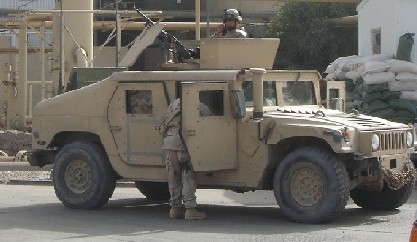Mood:
Topic: The US Military
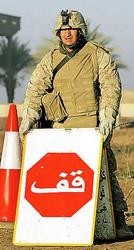 For nearly 12 months, every time I went from my compound to the Palace, I had to pass through a Marine checkpoint. During that time, I have seen the Marines beef up the checkpoint. At first it was simply a bunch of Marines who were supported by two machinegun nests perhaps 30 yards from the checkpoint. Then, they added speed bumps. Shortly after that, they added a lot of jersey barriers. Then, they added thick metal wires that could be used block off the road in an emergency.
For nearly 12 months, every time I went from my compound to the Palace, I had to pass through a Marine checkpoint. During that time, I have seen the Marines beef up the checkpoint. At first it was simply a bunch of Marines who were supported by two machinegun nests perhaps 30 yards from the checkpoint. Then, they added speed bumps. Shortly after that, they added a lot of jersey barriers. Then, they added thick metal wires that could be used block off the road in an emergency. The Embassy closed the check point because the felt that the Green Zone was safe enough that they could no longer justify keeping the Marines there, and they are apparently relying on nearly security contractors to provide the level support that they believe is adequate. All the same, I would rather have a small group of Marines serving as a line of security around the Palace than relying on a bunch of security contractors who can't speak English.
And in other news . . . according to early election returns, Iraqi voters choose sectarian parties rather than one of the handful of nation-wide parties. Nine out of 10 Iraqis in the Shiite Muslim provinces of the south voted for religious Shiite parties, according to the early results from the Independent Electoral Commission of Iraq. Nine out of 10 Iraqis in Sunni Muslim Arab areas of central and western Iraq voted for Sunni parties. Nine out of 10 Iraqis in the Kurdish provinces of the north voted for Kurdish candidates.

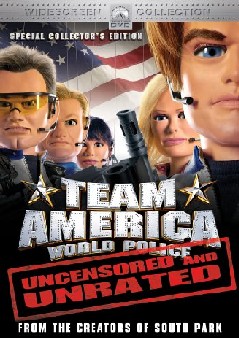 Marines in Anbar province refer to Iraqis as Dirka Dirkas. The reference comes from a film called
Marines in Anbar province refer to Iraqis as Dirka Dirkas. The reference comes from a film called 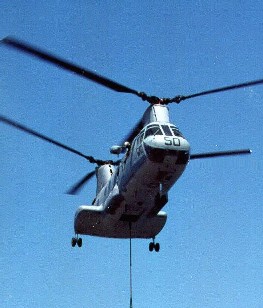 The other night, as I watched two helicopters fly right over my compound, I noticed that the red nighttime warning light on my compound's communication tower had burned out. I realized that because the helicopters fly so low, there was a chance that they could hit the tower and crash into my compound. The idea of an American helicopters crashing inside my compound did not give me a "warm and fuzzy" feeling.
The other night, as I watched two helicopters fly right over my compound, I noticed that the red nighttime warning light on my compound's communication tower had burned out. I realized that because the helicopters fly so low, there was a chance that they could hit the tower and crash into my compound. The idea of an American helicopters crashing inside my compound did not give me a "warm and fuzzy" feeling.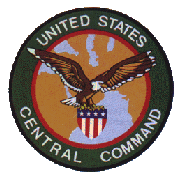 Before the war in Iraq, United States Central Command (
Before the war in Iraq, United States Central Command (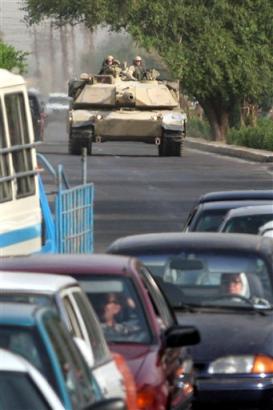 When you enter into the International Zone one of the first things you see is a giant 60 ton, steel encased depleted uranium armored
When you enter into the International Zone one of the first things you see is a giant 60 ton, steel encased depleted uranium armored 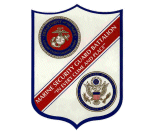 The chancery is protected by a
The chancery is protected by a 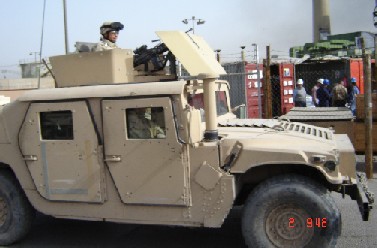
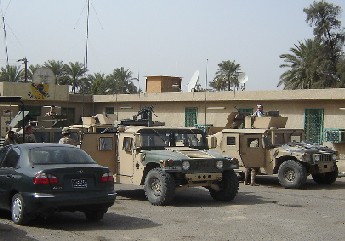 I have even seen a non-military planning document that seems to suggest that Iraq will leave its transitional stage by the beginning of 2007.
I have even seen a non-military planning document that seems to suggest that Iraq will leave its transitional stage by the beginning of 2007. 